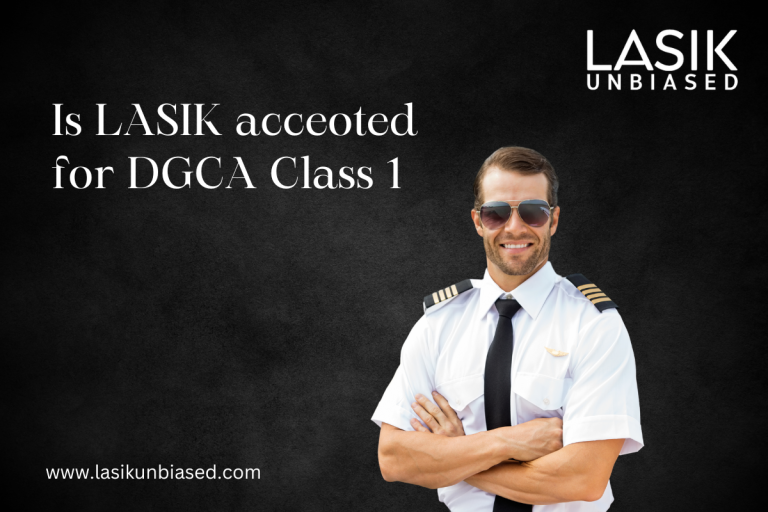he Directorate General of Civil Aviation (DGCA) in India has strict medical standards for pilots, ensuring they are physically and mentally fit to fly. Class 1 medical certification is mandatory for those aspiring to become commercial pilots. One of the most crucial aspects of this examination is vision testing, as clear and stable eyesight is essential for safe aviation operations.
Many aspiring pilots who have undergone LASIK wonder whether it is accepted under DGCA regulations. Since LASIK is a widely performed vision correction procedure, understanding its implications for Class 1 certification is necessary before deciding.
LASIK and Its Impact on Pilot Eligibility
LASIK, or Laser-Assisted In Situ Keratomileusis, is a laser eye surgery that corrects refractive errors such as myopia, hyperopia, and astigmatism. The procedure reshapes the cornea to improve how light enters the eye, eliminating or reducing dependence on glasses or contact lenses. While LASIK provides a clear vision for most individuals, aviation authorities, including the DGCA, have specific guidelines regarding its acceptance for pilots. These regulations ensure that post-surgical effects do not interfere with a pilot’s ability to perform their duties effectively.
Does DGCA Allow Pilots Who Have Undergone LASIK?
DGCA permits candidates who have undergone LASIK to apply for Class 1 medical certification, but specific conditions must be met. The main concern is whether the surgery has resulted in side effects that could impact a pilot’s vision, such as glare, halos, or night vision disturbances. The cornea’s stability and long-term vision clarity are also considered. Pilots with LASIK must undergo additional medical evaluations to confirm their eligibility before being declared fit to fly.
Waiting Period and Recovery Requirements
One key requirement set by the DGCA is a mandatory waiting period of six months after LASIK surgery before a candidate can apply for a Class 1 medical examination. This waiting period ensures that the eyes have completely healed and the vision has stabilized. Any fluctuations in vision during this time can indicate potential complications, making the candidate ineligible. During this period, it is essential for individuals to undergo regular eye check-ups to monitor the healing process and detect any abnormalities that might arise post-surgery.
Post-LASIK Vision Stability and Tests Required
After the mandatory waiting period, pilots must demonstrate that their vision remains stable over time. This is confirmed through repeated eye tests that measure refractive stability. Any significant change in prescription after surgery may be a cause for concern and could lead to disqualification. To assess the eye’s overall health, DGCA requires candidates to undergo additional ophthalmic tests such as corneal topography, pachymetry, and wavefront aberrometry. These tests help evaluate the cornea’s structural integrity and check for complications such as corneal thinning or irregularities.
Potential Risks of LASIK for Pilots
While LASIK has a high success rate, some individuals experience side effects that can be problematic for aviation professionals. The most commonly reported issues include glare, halos, and reduced contrast sensitivity, particularly in low-light conditions. These symptoms can be dangerous for pilots who operate flights at night or in challenging weather conditions. If a candidate reports persistent visual disturbances after LASIK, they may be deemed unfit for aviation duties. Dry eye syndrome is another concern, as pilots spend long hours in air-conditioned cockpits with low moisture levels. Candidates with severe dry eye symptoms may find it uncomfortable to fly for extended periods.
Alternative Vision Correction Procedures for Pilots
Some individuals who do not qualify for LASIK due to thin corneas or other medical conditions may consider alternative vision correction procedures that could be more suitable for pilots. PRK, or Photorefractive Keratectomy, is a procedure similar to LASIK but does not involve creating a corneal flap. Since PRK has a lower risk of flap complications, some aviation authorities may prefer it. Another option is the Implantable Collamer Lens (ICL), which involves placing a corrective lens inside the eye without altering the cornea. Candidates considering vision correction surgery should consult an aviation medical examiner to ensure their chosen procedure complies with DGCA regulations.
Can LASIK Affect a Pilot’s Career Progression?
Once a pilot receives Class 1 medical clearance after LASIK, their career is generally unaffected. However, pilots must continue to meet vision standards throughout their careers, as periodic medical examinations are required to maintain certification. Any vision changes must be reported to aviation medical authorities, and additional assessments may be conducted if necessary. While LASIK does not inherently impact career progression, pilots must remain vigilant about their eye health to ensure long-term eligibility for flying.
Guidelines for Pilots Considering LASIK
Aspiring pilots considering LASIK should take certain precautions before undergoing the procedure. Consulting with an aviation medical examiner beforehand can help clarify whether the procedure is advisable for a specific case. Choosing an experienced ophthalmologist familiar with aviation requirements can also improve the chances of a successful outcome. Pilots should follow all post-operative care instructions and attend follow-up appointments to ensure proper healing. Pilots should undergo a thorough vision examination before applying for Class 1 medical certification to confirm that they meet DGCA standards.
Can a Pilot Fail the DGCA Medical Examination After LASIK?
Specific scenarios exist in which a candidate who has undergone LASIK may not qualify for Class 1 medical certification. If a pilot experiences significant visual disturbances, corneal abnormalities, or an unstable prescription post-surgery, they may be deemed unfit to fly. Candidates who fail to meet the minimum unaided vision requirements even after LASIK may also be disqualified. Suppose a candidate is declared unfit due to LASIK-related complications. In that case, they may be able to appeal the decision or seek further medical evaluations to determine whether the condition is reversible.
LASIK is accepted under DGCA Class 1 medical certification guidelines, provided that candidates meet specific conditions related to vision stability and the absence of post-surgical complications. The six-month waiting period after surgery is essential to ensure that the eyes have fully recovered and that vision remains stable. Pilots who undergo LASIK must be prepared for additional ophthalmic evaluations as part of their medical examination process.
While LASIK can provide significant visual benefits, potential side effects such as glare, halos, and dry eyes must be carefully considered before the procedure. Pilots who meet all the DGCA requirements after LASIK can pursue their aviation careers without any restrictions as long as they maintain optimal eye health and continue to meet vision standards throughout their profession.


